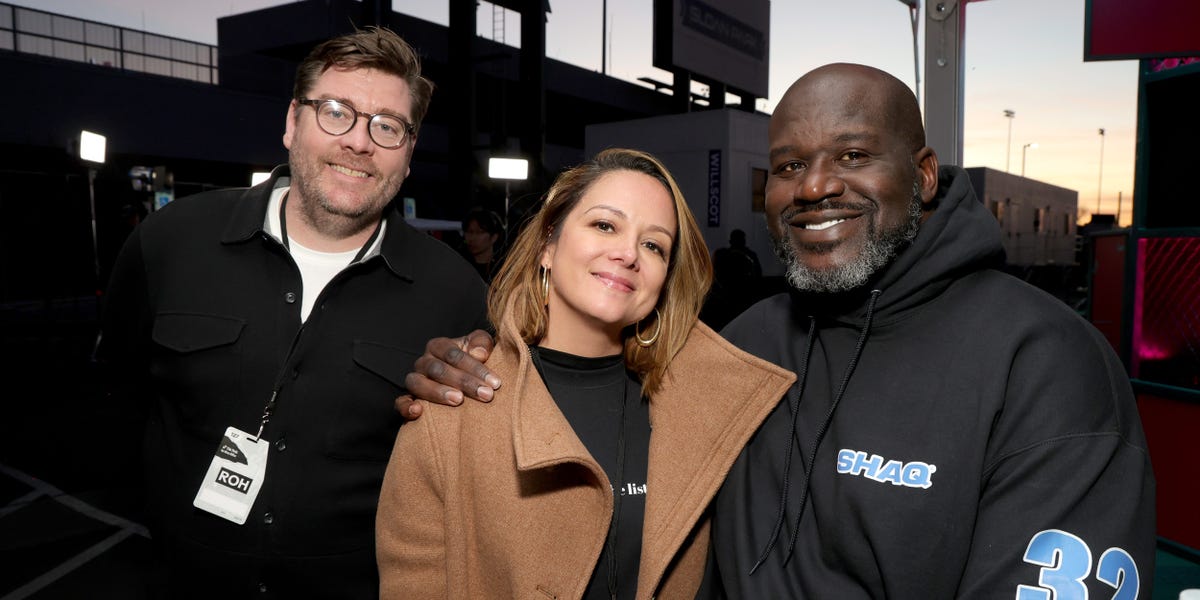TikTok held its first big live-music event on December 10 in Sloane Park, a baseball stadium just outside of Phoenix, Arizona. Simulcast on TikTok Live, the event featured headliners like Cardi B, Anitta, and Peso Pluma, as well as up-and-coming performers including Isabel LaRosa and Lu Kala.
The sold-out show, “TikTok In The Mix,” was the culmination of a multi-year strategy by the company to build a community around music.
“Given where we are in our music journey and this incredible artist community that we’ve built around the platform, it just felt like the time was right,” Paul Hourican, TikTok’s global head of music partnerships and programming, told Business Insider ahead of the concert.
For those not tracking the short-video app’s rise as a music destination, the decision to host an in-person event might seem like a head-scratcher. But in 2023, any discussion around tech transformation in the music business often involves TikTok. Executives at companies like Warner Music Group and Live Nation Entertainment frequently cite the platform as a revenue opportunity and a tool to drive fan engagement.
“The TikTok moment for live music is just the gift for life,” Live Nation’s CEO Michael Rapino said in September at an investor conference — TikTok partners with Live Nation-subsidiary Ticketmaster to enable artists to sell concert tickets from within the app.
TikTok’s music journey began as early as 2018 when its parent company ByteDance opted to merge the platform with the lip-synching app Musical.ly. Since then, the company has established itself as a dominant platform in music discovery and expanded into other areas of the business with an artist-services arm, a creator-hosted radio station on SiriusXM, and a music-streaming app in five markets.
With broad ambitions in music, the company has to avoid stepping on the toes of rights holders that it relies on to license songs and avoid drawing the ire of artists who have complained that making TikToks distracts from other tasks like writing or performing. The company recently commissioned a report that demonstrated the different ways its app helps drive revenue for partners.
Having its hands in so many parts of the industry can make it complicated to balance relationships with its partners.
“In such a relatively short space of time, we have taken on a lot,” Hourican said. “Any platform that is fortunate enough to grow to the size of TikTok, I think there’s inherently going to be a complication, so to speak, around that, or multiple different interests.”
TikTok recently announced a slew of new features for artist accounts designed to make it easier for them to promote music without having to create videos. These included a custom verification tag for musicians, a tool to highlight newly released tracks for up to 44 days, and a separate music tab to curate song catalogs. The tool kit mirrors similar features that pure-play music apps like Spotify or Apple and have rolled out. It also recently expanded a feature that makes it easier for users to add songs they find on TikTok to playlists on Spotify, Apple Music, and Amazon Music.
“When we think about certain features like artist verification or certified artists, it is all in the spirit of just trying to make it easier for artists to understand their community on the platform and understand the best ways to grow it,” Hourican said. “We want to maximize the amount of time artists have to do what artists do and make it as easy for them as possible.”
The “TikTok In The Mix” event was yet another way for the company to signal to the industry that it wants to be a partner, not a competitor — even if they are competing directly in some areas.
“Any excuse to throw a big global livestream completely centered around music, hopefully, is a good thing for everyone involved,” Hourican said.
Correction — December 14, 2023, 11:34 am EST: This story originally misstated the number of days a TikTok tool allows artists to highlight newly released tracks. It’s 44 days, not 45.
Read the full article here





